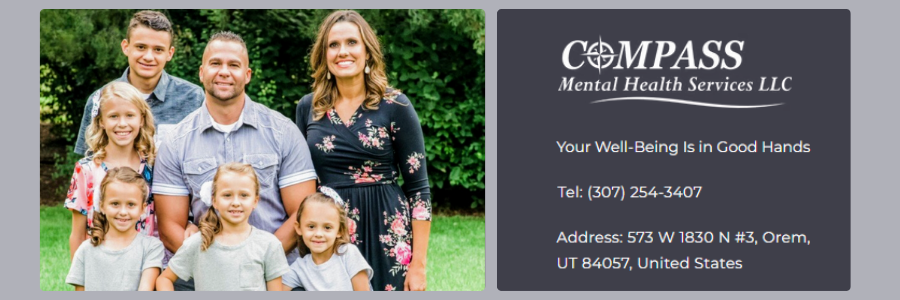When Life Changes Feel Overwhelming: Discovering the Power of Family Therapy
Have you ever faced a change so big that it made everything else in your life feel out of balance? For many people, events like moving to a new place, school troubles, or family disagreements can make daily life challenging. Emotions such as sadness, worry, or frustration can seem to take over, often affecting other family members, too. A family therapist is specially trained to guide people through these tough times, helping everyone understand each other better and find a way forward together.
When someone feels overwhelmed, it is easy to believe that things will never get better. This can be especially true for young people and their families who might not know how to even start talking about what’s wrong. This is where a family therapist steps in, offering a safe place where everyone’s feelings and thoughts can be heard. By using proven strategies, these therapists help families build strength during difficult times, showing that even big changes can lead to stronger connections and brighter days ahead. Understanding what a family therapist does, and how they make a difference, gives hope to anyone who feels lost or stuck right now.
What Does a Family Therapist Do? Understanding Their Role in Guiding Families Through Tough Times

A family therapist is an expert who helps families work through problems that affect everyone. Whether the challenge is anxiety, trauma, or just everyday stress, a family therapist’s main goal is to bring people closer together and teach them healthy ways to talk, listen, and solve problems. By using sessions to sort out worries and find solutions, family therapists support both adults and teens as they learn to cope with life’s changes. The role of the therapist does not stop with just talking—they share tools and strategies that families can practice outside of the therapy room, helping everyone cope better day to day.
Not understanding how a family therapist can help may lead some people to handle problems alone, which can often make things feel even worse. When families avoid seeking help or don’t know what therapy involves, feelings of loneliness and misunderstanding can grow. But knowing that a family therapist is ready to guide, listen, and care can change everything. With their help, families learn to face tough moments with understanding and strength, turning struggles into chances for growth and deeper connection.
How Family Therapy Can Bring Families Together During Difficult Times
Compass Mental Health Services contributes years of knowledge in addressing anxiety, trauma, depression, and teen struggles—common challenges families might face. Having an experienced family therapist in your corner means gaining someone who puts your well-being and mental strength first. The therapist helps each person in the family feel understood and valued, whether sessions are in-person or online. Therapy is designed to fit each family’s unique needs, offering not just conversation but also practical steps to build resilience and connect with each other.

Real families benefit as they learn to break down barriers, which might be caused by constant worry, past experiences, or communication problems. Instead of allowing these obstacles to grow, a family therapist guides families in finding new ways to support one another. Over time, families often find more joy, improved trust, and hope in everyday life. By tapping into this expert help, family members can develop healthy coping skills and restore peace at home—even when big changes or unexpected challenges arise.
The Impact of Family Therapy on Teens and Parents Facing Life’s Obstacles
When teens go through hard times—from school pressures to feeling alone—parents often feel unsure about how best to help. A family therapist offers support that is designed to bridge these gaps, helping both teens and parents be heard and valued. By creating a safe space for everyone to share, therapists allow each voice to matter, building understanding that had been missing before. Not only does therapy address the struggles teens face, it also gives parents guidance to support their children without feeling overwhelmed themselves.
In many cases, families who work with a therapist discover greater resilience and develop new skills for tackling life’s obstacles. With the compassionate, nonjudgmental approach that defines professional therapy, the entire family can learn to respond with patience, kindness, and confidence. Whether the issue is anxiety, trauma, or just feeling stuck, therapy makes it possible to move forward as a team, transforming once-troubling events into opportunities for growth.

Navigating Anxiety, Trauma, and Depression as a Family Unit
Conditions like anxiety, trauma, and depression don’t just affect one family member—they can touch everyone. A family therapist is trained to recognize how these struggles show up in family life, and to help everyone talk about their feelings in a safe environment. This process builds understanding and connection, making it easier to work toward healing. Compass Mental Health Services emphasizes the importance of treating not just the individual, but the whole family, which can lead to lasting improvements in how everyone feels and works together.
Teletherapy—a modern way to get help through video conferencing—makes therapy more accessible for busy families. By continuing valuable sessions even when someone can’t make it in person, this approach ensures continuous support, wherever you are. Addressing mental health as a team means no one has to struggle on their own, and families can keep moving toward brighter, healthier days.
Why Building Strong Family Connections Matters in Mental Wellness
Family connections are at the heart of lasting mental wellness. When people feel safe, understood, and supported at home, it’s easier to face challenges outside. Family therapists teach skills that strengthen these bonds—like honest communication, healthy boundaries, and ways to solve problems together. As each family member learns how to express feelings and listen with care, misunderstandings fade, and compassion grows.

Compass Mental Health Services encourages families to see therapy as a step toward positive change, not just a last resort when things get tough. By investing in these connections, families not only overcome struggles but also celebrate together, enjoying more moments of joy and laughter. The benefits reach far beyond the therapy room, leading to lifelong skills that nurture trust, confidence, and support between loved ones.
Compass Mental Health Services: A Caring, Experienced Approach to Guiding Families
Compass Mental Health Services stands out through its commitment to helping teens, adults, and families heal from anxiety, trauma, and depression. The organization’s philosophy is rooted in creating a safe space, whether in-person or online, where growth and understanding can flourish. Their therapists combine extensive experience with a lighthearted, nonjudgmental attitude, making it easier for clients—especially those new to therapy—to feel comfortable and open up.
The mission centers on guiding families and individuals through difficult moments using personalized, evidence-based strategies. By teaching resilience and encouraging self-acceptance, these mental health professionals ensure that every family member feels heard and supported. They work alongside families every step of the way, dedicated to nurturing not just recovery, but lasting transformation and hope.
What Real Clients Say About Getting Help from a Family Therapist
Hearing from someone who has experienced success with a family therapist can help others feel less alone and more hopeful about taking the next step. When people are treated with kindness and understanding, positive change becomes possible. One reviewer shared their personal experience of finding the right therapist, describing how this caring guidance made all the difference.
I’ve only been seeing Devin for a few months now, but he has already been so helpful. I’ve tried therapy before and thought it wasn’t a good fit until I started talking to Devin. He is so nice and easy to talk to. He made me feel comfortable right away and was easy to communicate with and establish a connection with. He seems like a really genuine person and I appreciate all he has done for me and continues to do. Would highly recommend him to anyone looking for a therapist, he is great!
Just as this client found support, understanding, and new direction with the guidance of a family therapist, others can experience similar breakthroughs. Taking that first step to ask for help opens the door to healing, stronger connections, and the hope for even better days ahead.
Brighter Futures Start With the Right Guidance: Exploring the Benefits of Family Therapy
Through life’s changes and challenges, the experience and care of a family therapist can help families rediscover trust, joy, and confidence. By focusing on support, evidence-based methods, and strategies that work for each unique situation, expert therapists like those at Compass Mental Health Services lead the way in promoting healing and lasting mental wellness. Taking the time to explore family therapy can be the most important step anyone can take toward building a stronger, kinder, and more hopeful future.
Contact the Experts at Compass Mental Health Services
If you’d like to learn more about how a family therapist could benefit your life or your loved ones, contact the team at Compass Mental Health Services.
📍 Address: 573 W 1830 N #3, Orem, UT 84057, USA
📞 Phone: +1 307-254-3407
🌐 Website: https://devindutsoncmhs.com/
Compass Mental Health Services in Orem: Location and Hours
🕒 Hours of Operation:
📅 Monday: 11:00 AM – 5:00 PM
📅 Tuesday: 11:00 AM – 5:00 PM
📅 Wednesday: 11:00 AM – 5:00 PM
📅 Thursday: 11:00 AM – 5:00 PM
📅 Friday: 11:00 AM – 5:00 PM
📅 Saturday: ❌ Closed
📅 Sunday: ❌ Closed

 Add Row
Add Row  Add
Add 




Write A Comment